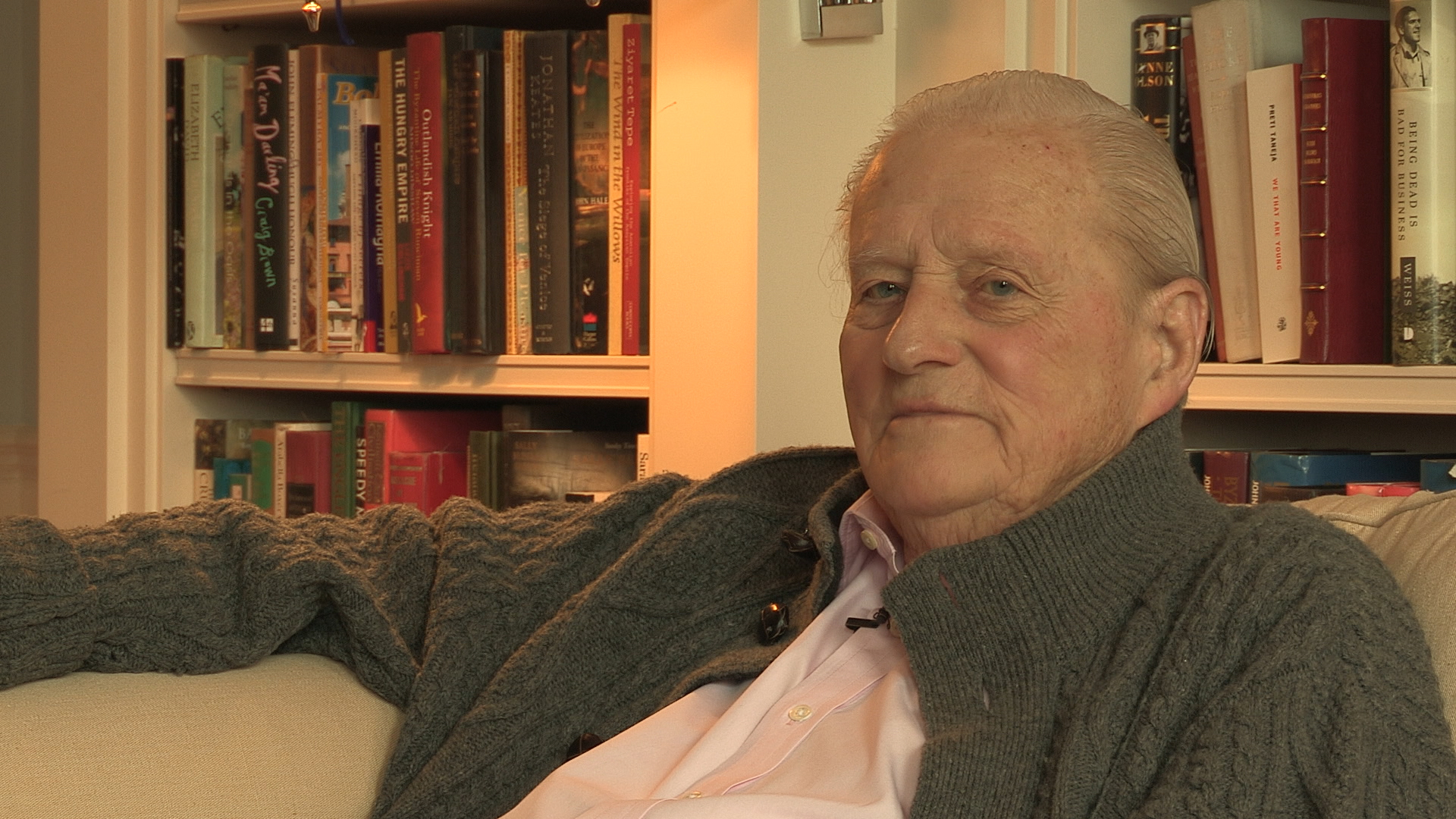NEXT STORY

Beautiful Beirut
RELATED STORIES

NEXT STORY

Beautiful Beirut
RELATED STORIES


|
Views | Duration | |
|---|---|---|---|
| 71. Killing time in Genoa | 51 | 02:52 | |
| 72. Beautiful Beirut | 63 | 03:29 | |
| 73. High society in Beirut | 62 | 02:02 | |
| 74. First rumblings of civil unrest in Beirut | 53 | 01:40 | |
| 75. My one great adventure | 50 | 05:35 | |
| 76. An apology from the police | 44 | 03:39 | |
| 77. Mother reacts to news of my shooting | 49 | 01:49 | |
| 78. Caught up in a military coup in Turkey | 45 | 04:43 | |
| 79. British diplomacy at its best | 53 | 04:05 | |
| 80. 'Our friends' in Beirut | 57 | 03:31 |


So, we left, the first six months in Belgrade had been pretty good hell, but we had grown to love it by the end. It had a marvellous sort of Balkan feel about it. You felt you were living in a sort of Eric Ambler thriller pretty much all the time. And we were really... after we'd found our flat, we were really very, very happy there. And we left with a lump in our throats, but we left, and there was the thought of lovely Beirut awaiting us.
And we went directly... we didn't go back to London in the middle, we went directly from Belgrade to Beirut and this involved taking the train to Genoa, spending the day in Genoa, and taking the boat from Genoa in the evening. And we had lunch, I remember, with the British Consul. The British Consul was the most extraordinary man at that time, he was called David Balfour. He had travelled a lot with Freya Stark. He comes into a lot of Freya Stark's travel books. And he had, I believe, at one moment been a monk on Mount Athos, which is unusual for a British Consul. But anyway, he was perfectly delightful and gave us a jolly good lunch and then I said, 'Well, look, it's now half-past two, we've got to be on-board the ship at half-past five, what are we going to do? We'd never been to Genoa before, what do we see? One thing?' And he said, 'No question about it, get into my car, I'll drive you to the cemetery.' So, to the cemetery we went and the cemetery is absolutely wonderful in Genoa because it's got all these superb carvings of whole sort of scenes from Genoese life. Cher Papa, in full evening dress sort of lying on his bed like this, you know, and cher Maman and the little bambini all sort of doing this in their sailor suits around the edge of the bed. And every stitch of cher Papa's sock is lovingly carved and there were whole rows of these sort of tableaus and they're absolutely wonderful. And there's one old lady who spent her entire life selling peanuts on the corner of the square, and she saved up all her money for a statue and there she is with her peanuts and every peanut is beautifully sculpted, you know. And it's absolutely, it's immensely Italian and completely unique, it's wonderful. So, we went to the cemetery and then we boarded HMS Esperia, or the SS Esperia, Italian line, and had a perfectly lovely cruise.
John Julius Norwich (1929-2018) was an English popular historian, travel writer and television personality. He was educated at Upper Canada College, Toronto, at Eton, at the University of Strasbourg and on the lower deck of the Royal Navy before taking a degree in French and Russian at New College, Oxford. He then spent twelve years in H.M. Foreign Service, with posts at the Embassies in Belgrade and Beirut and at the Disarmament Conference in Geneva. In 1964 he resigned to become a writer. He is the author of histories of Norman Sicily, the Republic of Venice, the Byzantine Empire and, most recently, 'The Popes: A History'. He also wrote on architecture, music and the history plays of Shakespeare, and presented some thirty historical documentaries on BBC Television.
Title: Killing time in Genoa
Listeners: Christopher Sykes
Christopher Sykes is an independent documentary producer who has made a number of films about science and scientists for BBC TV, Channel Four, and PBS.
Tags: Belgrade, Beirut, Genoa
Duration: 2 minutes, 52 seconds
Date story recorded: 2017
Date story went live: 03 October 2018